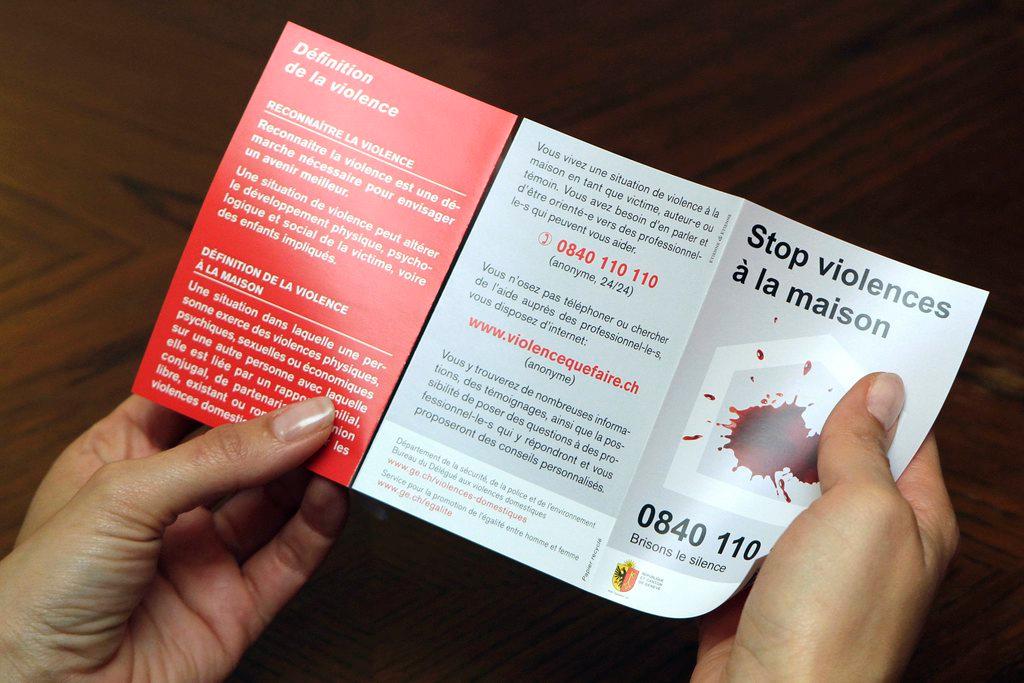Male victims are much less likely to seek help

Of some 30,000 victims of violence who seek support in Switzerland each year, only one quarter are male – although according to criminal statistics they’re victims as often as women, a new study has found.
Sociologist Anne Kersten of the University of Fribourg investigated the ties between victimisation and gender, as well as the development and implementation of aid for victims in Switzerland. She evaluated statistics on state assistance provided between 1978 and 2011.
Over the years, the study found, services for victims of violence have been based on the preconceptions that it is primarily women and girls who are victims, and that men can cope with the after-effects of violence on their own. It wasn’t until 2002 that the media began reporting on men who were victims of violence.
According to the study, there are major differences in the services provided by the cantons. In Bern, for example, men were the recipients of 17% of the services offered, whereas in Basel the proportion was 37%. This was not due to the fact that more men were victims in Basel, but to the way the services developed, the study found.
In canton Bern, for example, victim assistance developed without central coordination, and organisations that primarily focused on helping women expanded their services along the same lines. In Basel, on the contrary, new approaches were developed in conjunction with the implementation of legislation calling for nationwide provision of victim assistance, which took effect in 1993.
Based on her investigation, Kersten recommended that cantonal providers of support evaluate what they offer and how they present their services. They should distinguish between violence within and outside of the home. And they should set aside rooms and resources for men. In some instances, it is not clear that services can also be used by men, she said.

In compliance with the JTI standards
More: SWI swissinfo.ch certified by the Journalism Trust Initiative











You can find an overview of ongoing debates with our journalists here . Please join us!
If you want to start a conversation about a topic raised in this article or want to report factual errors, email us at english@swissinfo.ch.